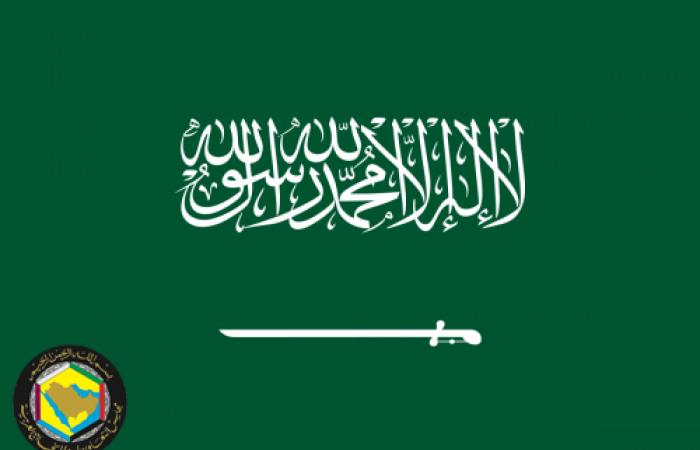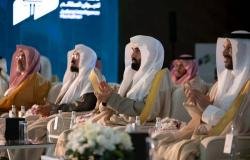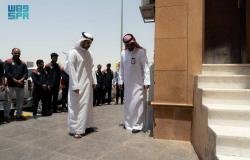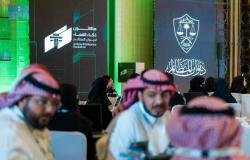
In a significant development in the Kingdom's religious leadership, Saudi Arabia has officially announced the appointment of Sheikh Saleh bin Fawzan al-Fawzan as the nation's new Grand Mufti. The 90-year-old Islamic scholar, widely respected for his decades of religious scholarship and jurisprudence, received his appointment through a royal decree issued by King Salman bin Abdulaziz on Wednesday evening, following a recommendation from Crown Prince Mohammed bin Salman.
A Historic Appointment for the Kingdom
The position of Grand Mufti holds immense significance in Saudi Arabia, as the kingdom serves as the custodian of Islam's two holiest cities, Mecca and Medina. The Grand Mufti serves as the highest religious authority in the country, responsible for issuing fatwas (religious rulings), guiding Islamic jurisprudence, and providing spiritual direction to millions of Muslims both within the kingdom and around the world.
According to the official announcement by the Saudi Press Agency, the state-run media outlet, Sheikh Saleh's appointment marks a new chapter in the kingdom's religious leadership. His extensive background in Islamic scholarship and his long-standing contributions to religious education make him a notable figure for this prestigious role.
Early Life and Religious Education
Sheikh Saleh bin Fawzan al-Fawzan hails from the al-Qassim region in central Saudi Arabia, a region known for its strong Islamic scholarly traditions. Following the passing of his father during his youth, the young Saleh began his Quranic education under the guidance of a local imam in his community. This early foundation in Islamic studies would prove to be the beginning of a lifelong dedication to religious scholarship.
Through years of devoted study and teaching, Sheikh Saleh developed a reputation as a knowledgeable and committed Islamic scholar. His expertise spans various areas of Islamic jurisprudence, theology, and Quranic interpretation, earning him respect among religious circles throughout the kingdom and beyond.
Public Presence and Religious Outreach
Sheikh Saleh gained widespread recognition through his media presence and public engagement with Islamic education. He became particularly well-known through his participation in the radio program "Nur Ala al-Darb" (Light of the Way), where he addressed questions from Muslims seeking religious guidance on various aspects of daily life and Islamic practice.
Beyond his radio appearances, Sheikh Saleh has authored numerous published works on Islamic topics, contributing to religious literature accessible to Arabic-speaking Muslims worldwide. His television appearances have also made Islamic knowledge more accessible to a broader audience, helping to educate and guide Muslims on matters of faith and practice.
Religious Scholarship in a Modern Context
Throughout his career, Sheikh Saleh has been known for his traditional approach to Islamic scholarship, firmly rooted in classical interpretations of Islamic texts. His fatwas have addressed a wide range of contemporary issues, from modern technology to social practices, always seeking to apply Islamic principles to the challenges of modern life.
His religious pronouncements have occasionally sparked discussions and debates, particularly regarding his positions on various religious and social matters. As with many religious scholars in conservative Islamic circles, some of his views have generated controversy in international media, though they reflect traditional perspectives held within certain segments of Islamic scholarship.
The Role in Saudi Arabia's Vision
Sheikh Saleh's appointment comes at a time when Saudi Arabia continues to balance its role as the heart of the Islamic world with its modernization initiatives under Vision 2030, the kingdom's ambitious reform program. The Grand Mufti's role will be crucial in providing religious guidance that harmonizes with the nation's development goals while maintaining Saudi Arabia's Islamic identity.
The kingdom has been undergoing significant social and economic transformations in recent years, introducing reforms in areas such as entertainment, women's rights, and economic diversification. The Grand Mufti's office will play an important role in ensuring that these changes align with Islamic values and principles as understood within the kingdom's religious framework.
Regional Religious Dynamics
As Grand Mufti, Sheikh Saleh will also navigate complex regional religious dynamics. Saudi Arabia, as the birthplace of Islam and home to its holiest sites, maintains a position of religious leadership across the Muslim world. The Grand Mufti's pronouncements on regional conflicts, interfaith relations, and Islamic unity will carry weight far beyond the kingdom's borders.
His role becomes particularly significant given ongoing geopolitical tensions in the region, including the kingdom's complex relationships with neighboring countries. The Grand Mufti's guidance on matters of religious interpretation and Islamic law will influence how Saudi Arabia engages with the broader Muslim community globally.
Looking Forward
The appointment of Sheikh Saleh bin Fawzan al-Fawzan represents continuity in Saudi Arabia's religious leadership while also marking a transition to a new era. At 90 years old, Sheikh Saleh brings decades of experience and scholarship to the position, qualities that will be invaluable as the kingdom continues to evolve while maintaining its Islamic foundations.
As the new Grand Mufti assumes his duties, Muslims in Saudi Arabia and around the world will look to him for religious guidance, fatwas on contemporary issues, and spiritual leadership. His appointment underscores the enduring importance of religious scholarship and traditional Islamic learning in the modern Saudi state, even as the kingdom pursues ambitious modernization goals.
The religious community in Saudi Arabia and beyond will be watching closely as Sheikh Saleh begins this new phase of service, continuing the legacy of those who have held this distinguished position before him while charting a course for religious leadership in the years ahead.





